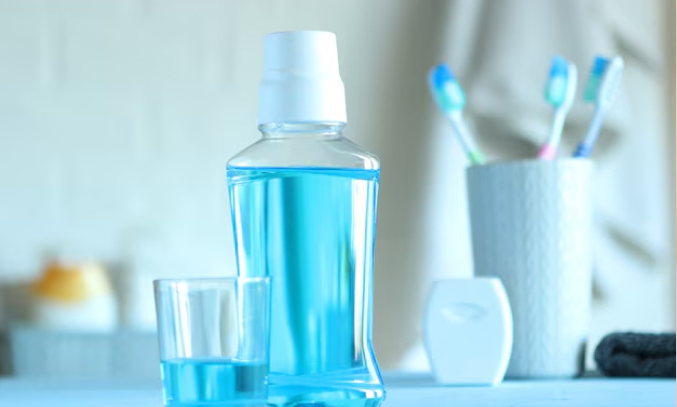Unmasking the Controversy: The Debate Over Mouthwashes
Dr. Hussam Al Nasrallah

Mouthwashes have long been hailed as a crucial component of oral hygiene, promising to freshen breath, kill bacteria, and contribute to overall dental health. However, recent debates have emerged surrounding the use of these seemingly innocent elixirs. In this blog, we delve into the controversy surrounding mouthwashes, exploring both their benefits and potential drawbacks.
The Benefits
-
Fresh Breath: Mouthwashes are popular for their ability to combat bad breath instantly, providing a quick fix for social situations.
-
Bacterial Control: Many mouthwashes contain antimicrobial agents like chlorhexidine, which can help control bacteria in the oral cavity, contributing to healthier gums and teeth.
-
Complementary to Brushing and Flossing: Mouthwashes are often seen as a supplementary step to brushing and flossing, providing an extra layer of cleanliness.
The Controversy
-
Alcohol Content: Some mouthwashes contain a high alcohol content, which has raised concerns about potential negative effects, such as dry mouth and irritation. Critics argue that alcohol may disrupt the natural balance of oral bacteria.
-
Antibiotic Resistance: The use of antimicrobial agents in mouthwashes has sparked debates over the potential development of antibiotic-resistant strains of bacteria. This could have broader implications for global health.
-
Oral Microbiome Disruption: There is growing concern that regular use of strong antimicrobial mouthwashes may disrupt the delicate balance of the oral microbiome, potentially leading to unintended consequences for overall health.
Alternatives and Recommendations
-
Non-Alcoholic Formulas: Opting for alcohol-free mouthwashes can help mitigate concerns about dry mouth and irritation, providing a gentler option for users.
-
Natural Alternatives: Some individuals prefer natural alternatives like oil pulling with coconut oil or using herbal rinses to maintain oral health without the potential drawbacks associated with certain chemicals.
-
Balanced Approach: Dentists often recommend a balanced approach, combining regular oral hygiene practices such as brushing and flossing with occasional or targeted use of mouthwashes when necessary.
While mouthwashes continue to be a popular tool in oral care, the controversy surrounding their use highlights the need for a nuanced approach. Individuals should be aware of the potential drawbacks and benefits, making informed decisions based on their specific oral health needs. Consulting with dental professionals can provide personalized guidance, ensuring that oral hygiene practices contribute to overall well-being without unintended consequences.